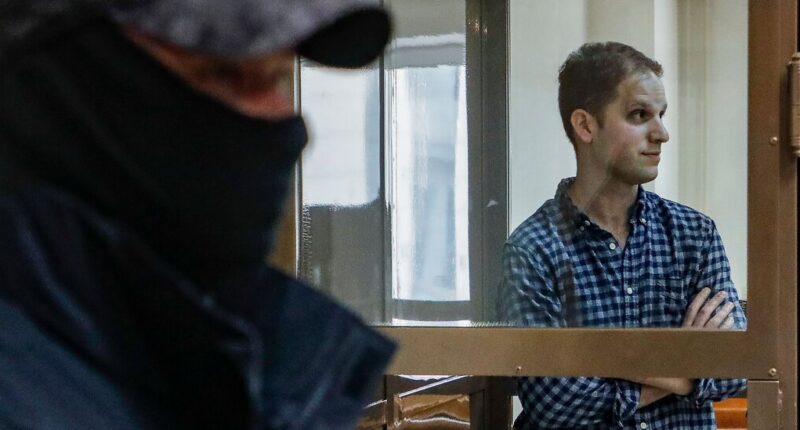
Why It Matters
The House has weighed in to condemn Mr. Whelan’s detention in the past, but Tuesday’s resolution was the first time that either chamber of Congress had officially called for Mr. Gershkovich’s release. The 422-to-0 vote in the House was a bipartisan statement that echoes and amplifies appeals that have been made previously by President Biden and other U.S. officials, and helps to keep Mr. Gershkovich’s case in the public eye.
The resolution uses his arrest to highlight and denounce Russia’s habit of “detaining, imprisoning and otherwise seeking to intimidate journalists.”
It also expresses “continued support” for Marc Fogel, a U.S. citizen arrested for trying to enter Russia with medical marijuana, and Vladimir Kara-Murza, a journalist and activist holding Russian and British nationality. And it exhorts Mr. Biden, Secretary of State Antony J. Blinken and Roger D. Carstens, Mr. Biden’s special envoy for hostage affairs, to press for Mr. Gershkovich’s “immediate release in all interactions” with the Russian government.
Background
Mr. Gershkovich, an American citizen and the son of Soviet-born Jews, had been working as a correspondent in Russia since 2017, and was apprehended while on assignment in the city of Yekaterinburg, in the Ural Mountains. He is the first foreign correspondent to be charged with espionage since the Cold War, and is being held at the high-security Lefortovo prison in Moscow.
Mr. Gershkovich’s arrest came just a few months after a high-profile prisoner swap in which Brittney Griner, an American W.N.B.A. star and two-time Olympian who played for a Russian basketball team during the off-season, was released in exchange for Viktor Bout, a Russian arms dealer. American officials tried and failed to secure the release of Mr. Whelan in the deal.
Mr. Whelan, who had been working as a corporate security executive, was arrested at a Moscow hotel in 2018 moments after a Russian acquaintance handed him a USB stick. Mr. Whelan, who holds American, Canadian, Irish and British passports, has insisted he was visiting Russia as a tourist, and was set up.
What’s Next
The resolution is a gesture chiefly aimed at prompting action by others. The difficult work required to secure the release of Mr. Gershkovich, Mr. Whelan and others most likely will take place in private diplomatic engagements among senior government representatives, following the pattern of previous cases like Ms. Griner’s.
Her charges for carrying vape cartridges containing hashish oil into the country had to make their way through the Russian courts and result in a conviction before discussions about an early release gained any urgency.
It is not clear which Russian prisoners the Kremlin would seek in exchange for either Mr. Gershkovich or Mr. Whelan, or both. Mr. Bout — known as the “merchant of death” and convicted in the United States of conspiring to kill Americans — is presumed to have been the most high-value Russian prisoner in U.S. custody before he was traded for Ms. Griner’s release.
Source: | This article originally belongs to Nytimes.com









